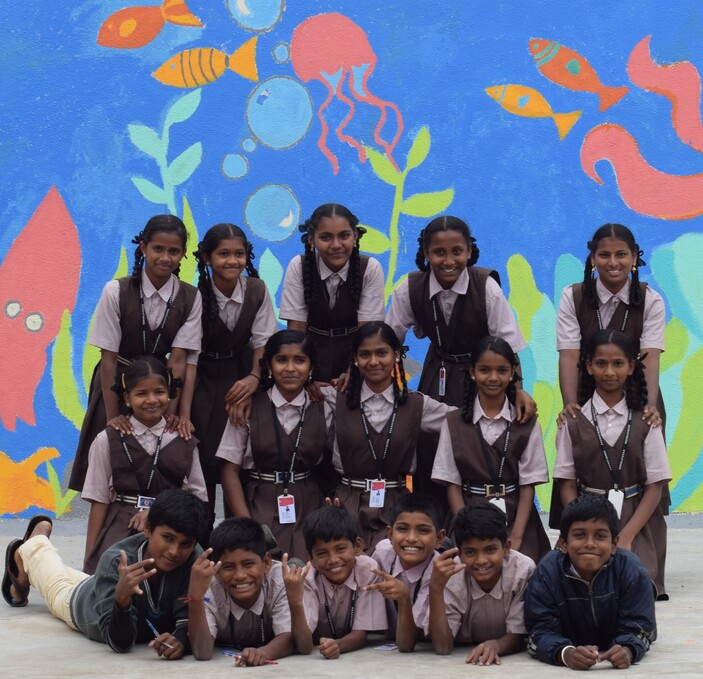“The destiny of this country is in the classroom”
A Conversation with Prof. P. L. Vishweshwar Rao
When I first reached out to Professor P. L. Vishweshwar Rao, a member of the Telangana Education Commission (TEC), to request an interview, he responded immediately and generously offered time. This set the tone for a conversation that left a deep mark on me, not just professionally, but personally. To him, education is not just preparation for the future, it is a space where children live, feel, grow and begin to shape the society they will inherit.
“Education is power. Knowledge is power,” he said early in our conversation. But he was quick to add, “it’s not just about information. Education is a space where identities are shaped, values are cultivated and the future of a just society is seeded.” We spoke at length about the early years of a child’s life (ages 1 to 6), when the foundation for life is laid. Language, emotional bonds, curiosity and cultural practices begin to take root here. “When we build a strong foundation in preschool through creativity, language, cultural understanding and emotional development, we prepare children for life,” he shared.
This made me bring up life skills, something I believe should be core to how we educate children. Prof. Rao agreed. “Children should get the space to develop the ability to think, feel and express.” He believes providing children with space to explore their interests in music, art or sport is essential. “Developing curiosity and creativity is basic,” he said. “Encouraging children to ask questions, even silly ones, is not a distraction but a sign of healthy and growing minds.”
He further elaborated that the person at the centre of this nurturing environment is the teacher. “We need teachers who are creative, committed and compassionate,” he said. Not just instructors, but observers, guides and companions in a child’s learning journey. “A good teacher doesn’t only teach, they connect with each child, understand their background, and creates a space where every child belongs.”
Teaching with Values at the Core
He made reference to the values-based curriculum being developed in collaboration with the Telangana Education Commission and Dream a Dream. Values like empathy, honesty and care should not be taught as abstract ideals but lived in the classroom. “It’s not just about teaching, it’s about shaping hearts and minds.”, he said.
This reminded me of a story shared by Ms. Rupa Shireen (School Assistant English, Z.P.H.S Wargal, Siddipet District) described a time when a boy in her class was caught misbehaving. In the past, she might have supported punishing him, but after the Chelimi* training, she learned to respond differently. She listened to the boy, gave him space to share his feelings, and helped him reflect on his own actions. In the weeks that followed, she noticed the boy becoming more engaged in class and more willing to take responsibility for his behaviour. Her approach not only supported him but also brought a sense of trust and openness to the classroom.
Similarly, Dr. S.Yasheem Bee [School Assistant Hindi, Government Boys High School, Jogulamba, Gadwal District] noticed that students of ninth grade were hesitant to participate in cultural activities during a school event, afraid of making mistakes. Instead of forcing them, she encouraged them gently, reminding them that school is a place to try new things. Her words gave them the confidence to take risks. Even though they didn’t win any prizes, she celebrated their efforts. Over time, these students grew more confident and even represented their school at the state level.
When I reflect on these experiences, I see how values like empathy and care are not just taught but lived, day by day, in the way teachers respond to children. This is what it means to see the whole child. Reimagining education is not just about changing textbooks or policies. It is about changing how we see the child. When we see children not as future workers, but as whole people who are emotional, curious, creative and capable, we begin to build an education system that truly serves them. My conversation with Prof. Rao helped me see this more clearly than ever.
* Chelimi is a Telangana government school initiative that fosters compassionate classrooms by supporting teachers in developing students’ social-emotional skills through empathy, creativity and a non-judgemental attitude. Through creative activities and a focus on emotional wellbeing, the programme helps students handle challenges and creates classrooms where their emotions are acknowledged and validated.
About the Author:
Sonia Korra is a Program Associate at Dream a Dream. She works closely with government schools to support teachers and students. She is building spaces within the education system which are rooted in equality, dignity and care. The blog is based on her interview with Prof. P. L. Vishweshwar Rao, who retired as the Head of the Department of Communication at Osmania University and is a Fulbright Fellow from Boston University. He is currently a member of the Telangana Education Commission, established in September 2024 as a state-appointed think tank driving comprehensive, long-term reforms to strengthen education across all levels in Telangana.


